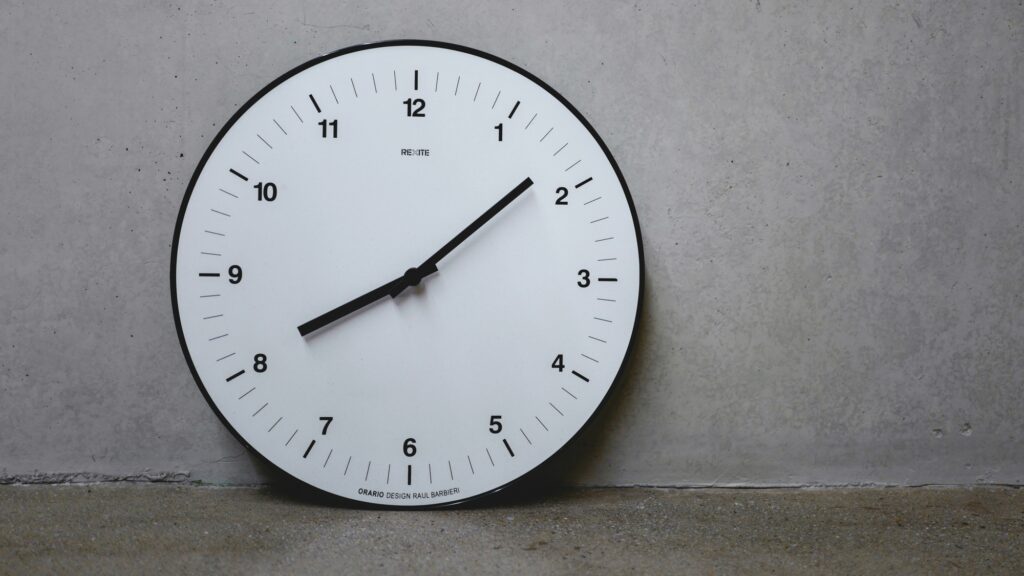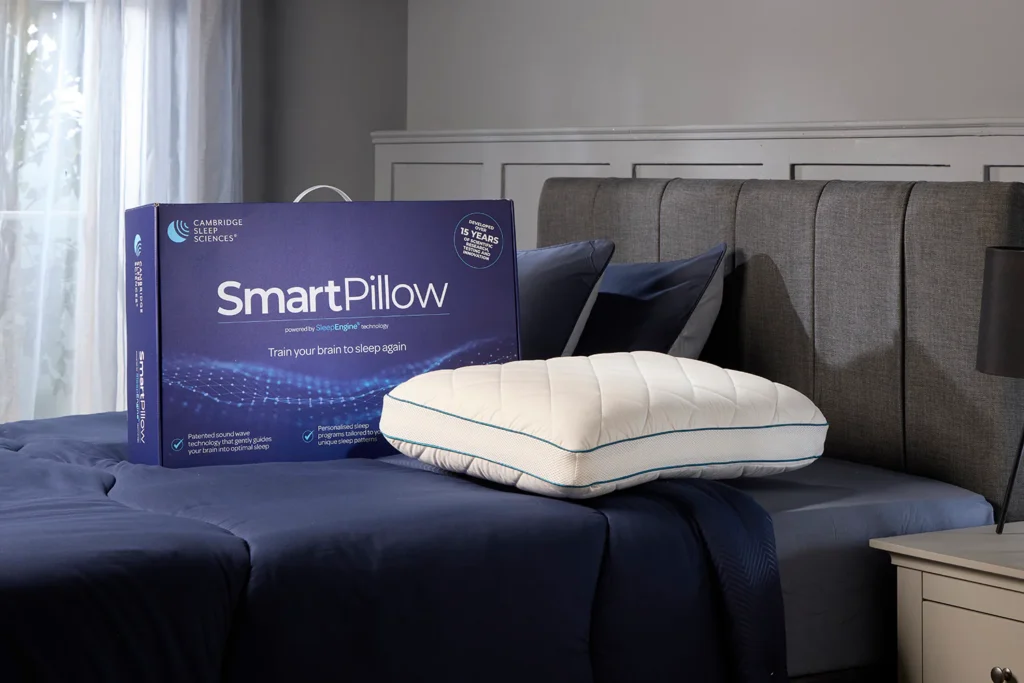Chronotypes aren’t lifestyle labels — they’re rooted in your circadian biology and linked to mental health, metabolism, and cardiovascular risk.
Understanding yours can help you align your schedule with your biology, make the most of your focus, protect your long-term health, and unlock better daily performance.
Read on to learn how to understand your chronotype, what it means for your focus and productivity – and check out our guide to the circadian rhythm and what it means for your body.
What is a chronotype?
Chronotype is your circadian typology — your individual preference for activity and alertness in the morning or evening. While everyone has a master biological clock in the brain’s suprachiasmatic nucleus, not all clocks tick alike.
Large-scale genetic studies have found hundreds of DNA variations linked to whether someone leans morning or evening type. Many of these genes regulate circadian rhythm, melatonin release, and sleep–wake cycles — showing that chronotype is not just about habits, but is partly written into your biology¹.
Chronotype also interacts with melatonin and cortisol cycles, shaping when you feel sleepy, when your body temperature peaks, and how your metabolism responds across 24 hours.
Researchers often classify people into morning, evening, and intermediate types using validated questionnaires like the Morningness–Eveningness Questionnaire (MEQ)² and the Munich ChronoType Questionnaire (MCTQ).
To make this practical, popular science maps these categories to four “chronotype animals”: Bear, Wolf, Lion, and Dolphin.
Find your chronotype
The Automated Morningness–Eveningness Questionnaire (AutoMEQ) is a validated tool based on the classic MEQ².
Find out yours: Take the AutoMEQ quiz here
With Ultrahuman Ring AIR, you can also track how your chronotype interacts with sleep, recovery, and temperature patterns to adapt routines to your biology.
The four chronotypes explained

The bear chronotype (intermediate type)
Most adults (~50–55%) align with the Bear. They wake with daylight, feel sharpest late morning to early afternoon, and experience a post-lunch dip. Bears correspond to the intermediate chronotype seen in population studies³.
But Bears are also prone to social jetlag — the misalignment between biological and social clocks when weekends and weekdays don’t match. This pattern has been associated with worse sleep and lower well-being⁴.
Productivity window: Late morning to late afternoon.
Helpful habits: Keep wake time consistent; get outdoor light soon after waking; time deep work before the mid-afternoon dip.
The wolf chronotype (evening type)
Wolves — roughly 15–20% of people — are night owls. They find mornings tough and hit their stride later in the day.
Evening types show higher rates of depressive symptoms and anxiety across multiple studies and reviews⁵⁶. They’re also linked to less healthy dietary patterns and increased cardiometabolic risk⁷. Wolves often accumulate sleep debt in 9–5 schedules, making morning light and consistent wake times especially important.
Productivity window: Afternoon and evening.
Helpful habits: Bright light within 30 minutes of waking; short walks or light movement before noon; schedule creative or strategic work after lunch.
The lion chronotype (morning type)
Lions — about 15% of the population — are early risers who peak in the morning and wind down early. They benefit from front-loading important tasks and allowing restorative downtime later in the day.
Evidence suggests that morning types report higher life satisfaction and lower risk of depression compared to evening types¹.
Productivity window: Early to mid-morning.
Helpful habits: Do focus work before noon; schedule collaboration early afternoon; protect an evening wind-down routine.
The dolphin chronotype (irregular / insomnia-prone)
Dolphins — about 10% — don’t fit neatly into solar rhythms. They often report fragmented sleep, restlessness, or insomnia.
Meta-analyses show that irregular or late chronotypes are more likely to report insomnia symptoms and disturbed sleep⁸.
Productivity window: Late morning to early afternoon (with variability).
Helpful habits: Consistent bed/wake times; tech cut-off before bed; use relaxation rituals like warm showers, journaling, or meditation.
How chronotype affects productivity and health

Your chronotype isn’t just about when you feel like sleeping — it touches nearly every part of your mental and physical health.
Cognition and performance. Morning types tend to think more clearly and perform better earlier in the day, while evening types hit their stride later. Laboratory studies show that night owls often struggle with attention and reaction time in the morning, but their performance improves — and sometimes even surpasses morning types — as the day goes on⁹¹⁰.
Mental health. Eveningness is consistently linked to higher rates of depression and anxiety⁵⁶. This may be because night owls often experience misalignment between their natural rhythms and social obligations — leading to chronic sleep debt, irregular routines, and reduced exposure to morning light.
Diet and cardiometabolic health. Your chronotype can influence how and what you eat. Evening types are more likely to consume sugary drinks, alcohol, and processed foods, and to eat later in the day. These patterns are linked to higher risks of obesity, insulin resistance, and type 2 diabetes⁷. Morning types, by contrast, are more likely to follow regular mealtimes and balanced diets.
Social jetlag. Many people experience a clash between their natural chronotype and the demands of work or school. This mismatch — known as social jetlag — happens when your body wants to sleep at one time but your alarm clock forces another. Over time, this repeated misalignment has been linked to poorer sleep quality, lower mood, and metabolic issues⁴.
How to work with your chronotype
You can’t change your biological clock completely, but you can work with it instead of against it. Small changes in daily routine can make a big difference in energy, focus, and sleep quality.
Keep a consistent wake time: Waking up at the same time every day — even on weekends — helps stabilise your body clock. If you sleep in for hours on Sunday, you risk starting Monday with the same “jetlag” feeling as if you’d flown across time zones.
Use light to your advantage: Light is the strongest signal for your circadian rhythm. Getting outside into bright natural light in the morning tells your body it’s time to be awake. In contrast, too much bright light in the evening — especially from screens — can trick your body into staying alert when it should be winding down.
Do your hardest work when you’re sharpest: Each chronotype has a natural “zone of focus.” Lions and Bears usually work best in the morning or around midday. Wolves hit their stride later in the afternoon and evening. Dolphins tend to have shorter peaks, often late morning or early afternoon. Plan your deep work and creative tasks around these windows.
Match exercise timing to your chronotype: If you’re a Lion or Bear, you’ll usually feel better exercising earlier in the day. Wolves often perform best with late-afternoon or evening workouts. Dolphins can benefit from light movement during the day, paired with calmer activities like yoga or stretching in the evening to prepare for sleep.
Watch your caffeine cut-off. Caffeine lingers in the body for hours: Drinking coffee or energy drinks too late in the day can delay melatonin release and make it harder to fall asleep. As a rule of thumb, keep caffeine to the morning or early afternoon — especially if you’re a Dolphin or Wolf.
Conclusion
Your chronotype isn’t just about being an “early bird” or “night owl.” It reflects genetic, hormonal, and neurological rhythms that affect sleep, productivity, and health. By understanding whether you’re a Bear, Wolf, Lion, or Dolphin — and grounding that knowledge in chronobiology — you can align your days with your biology, boost performance, and protect long-term well-being.
References
- Jones SE, Lane JM, Wood AR, et al. Genome-wide association analyses of chronotype in 697,828 individuals provides insights into circadian rhythms. Nature Communications. 2019.
- Horne JA, Östberg O. A self-assessment questionnaire to determine morningness–eveningness in human circadian rhythms. International Journal of Chronobiology. 1976.
- Roenneberg T, Allebrandt KV, Merrow M, Vetter C. Social jetlag and obesity. Current Biology. 2012.
- Wittmann M, Dinich J, Merrow M, Roenneberg T. Social jetlag: misalignment of biological and social time. Chronobiology International. 2006.
- Norbury R, Evans S. Diurnal preference and depressive symptomatology: a meta-analysis. Scientific Reports. 2021.
- Zou H, et al. Chronotype, circadian rhythm, and psychiatric disorders. Frontiers in Neuroscience. 2022.
- Lotti S, et al. Chronotype differences in energy intake, cardiometabolic risk, and health outcomes. Advances in Nutrition. 2022.
- Zhao Y, et al. Association between insomnia symptoms and chronotype: a meta-analysis. Sleep Health. 2025.
- Facer-Childs ER, Campos BM, Middleton B, et al. Circadian phenotype impacts the brain’s resting-state functional connectivity, attentional performance, and sleepiness. Sleep. 2019.
- Facer-Childs ER, Boiling S, Balanos GM. The effects of time of day and chronotype on cognitive and physical performance in healthy volunteers. Sports Medicine – Open. 2018.








